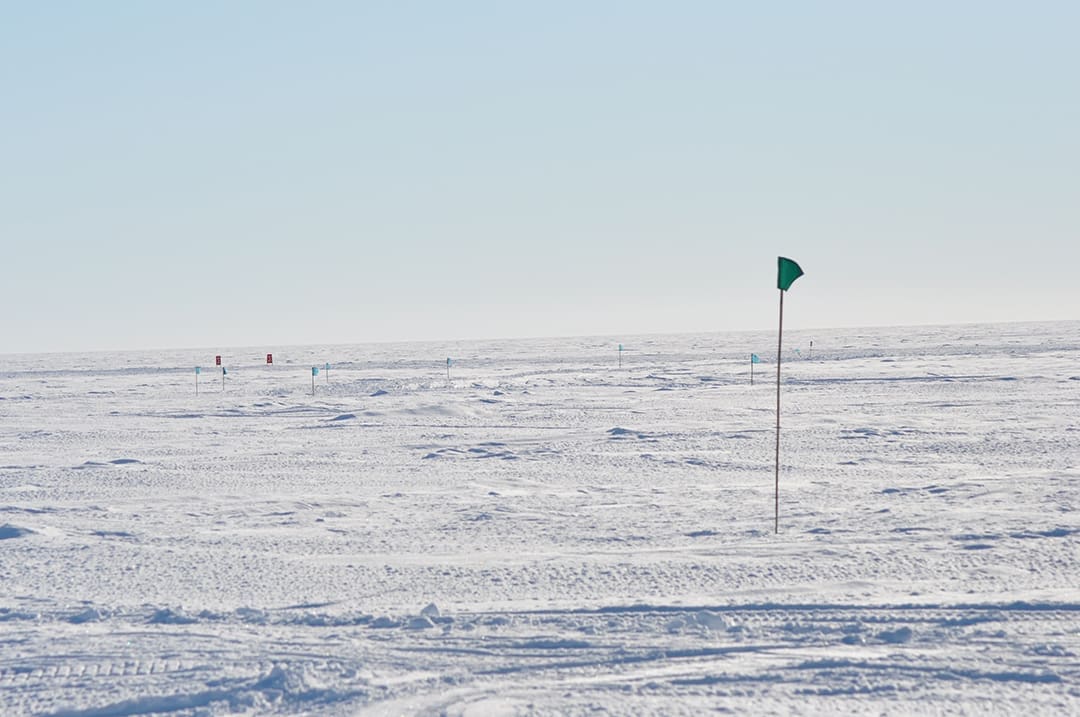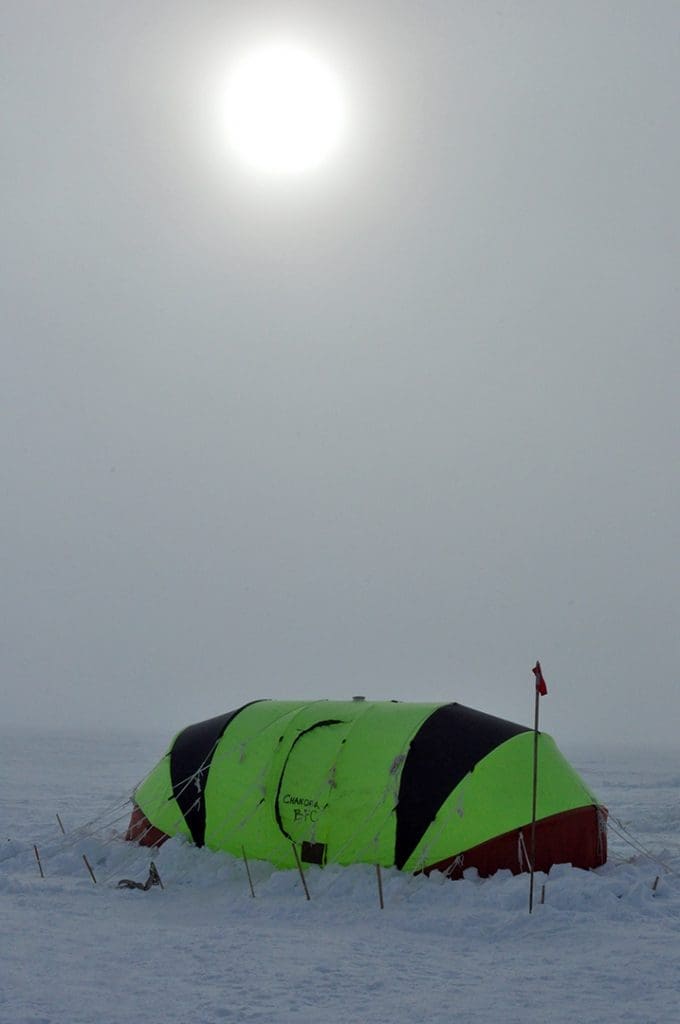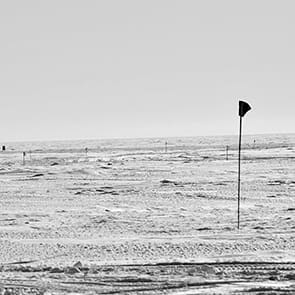Yesterday Camp – Part 7 – “Measured by Music”
Part 7
Measured by Music
Momme, the German physicist on the team, explained to me today that the seismometers have been gathering data for two years on the ice shelf’s reaction to infragravity waves from the sea below. Momme is also a jazz guitar player, so I have the luxury of a musical scientist helping me wrap my mind around this complex work. He explained that when you pluck the string of a guitar, the vibrations are transferred into the flat, wooden soundboard just as ocean waves from the rest of the planet transfer vibrations into the flat ice shelf. The seismometers can hear the subtle movements within this piece of floating ice equal to the size of France. My scientific team is testing the potential link between volatile, climate-change induced ocean movement and the breaking up of the ice shelf.

Climate change is all too often described as a “belief” or an “opinion” in public debate. On the contrary, it is quite real here. The seismometers tell us that the ice trembles in response to forces at work around the planet. I cannot help but tremble too. While the immediate and temporary cause of my trembling is probably the cold, the deeper and long lasting cause is the fragility of our world. The vibrations of the ocean waves make the ice tremble, then the trembling travels through my boots and my bones into my heart and my soul. This is the type of trembling that cannot be measured by a seismometer. It can only be measured by music.
The phrase, “measured by music” is not meant to describe a romantic sentiment about the relationship between Music and Science. Like climate change on the ice shelf, this is quite real for me. In response to severe ear infections as a baby, I became a severe stutterer. The muscles in my mouth freeze up with debilitating tension, robbing me of the ability to talk, to argue, to shout, to do all those other things dependent upon the spoken word. At the age of 11, I attended an intensive, bootcamp-esque summer speech clinic in which I learned the control that I still use today. Using this control at the highest level requires enormous amounts of intellectual energy and it allows me to speak in a way that resembles normal speech. Prior to learning this control, the only time I could open my mouth without the physical and emotional struggle of stuttering was when I sang. Since music circumnavigates this disability in a measurable, predictable way, it became very important to me as a child. Music allowed me to communicate my thoughts and so much more. It was the only time I felt beautiful and powerful. After learning the control, music has not lost its importance. It is still the vehicle that best navigates my soul.

Suffice it to say that stuttering silenced me and music sought out my voice. I can see here at Yesterday Camp that the voice of Antarctica is frozen within the silence of the ice. We cannot hear it with our ears but that doesn’t mean it isn’t there. I believe music can seek out that voice. Music can measure it. We can hear part of that voice in the data collected by seismometers but this voice cannot be limited to cold numbers and hard analysis. Just as the seismometers extend our ability to hear the ice, music extends our ability to see the intersection of numbers, emotion, endurance, longing, self-sacrifice and interdependence. Music can chart and measure the deep vibrations that resonate from the water, to the ice, to our bodies, and eventually to our souls. It can hear the chorus of trembling voices-not soprano, alto, tenor, and bass but rather the land, the ice, the seals, and the penguins. Within this chorus we also here the voices of the beautiful and tenacious people that work here. Words and numbers alone cannot contain this hidden truth, but that doesn’t mean it isn’t there. It can only be measured by music.
Part 8 [icon name=”arrow-right” class=”” unprefixed_class=””]

